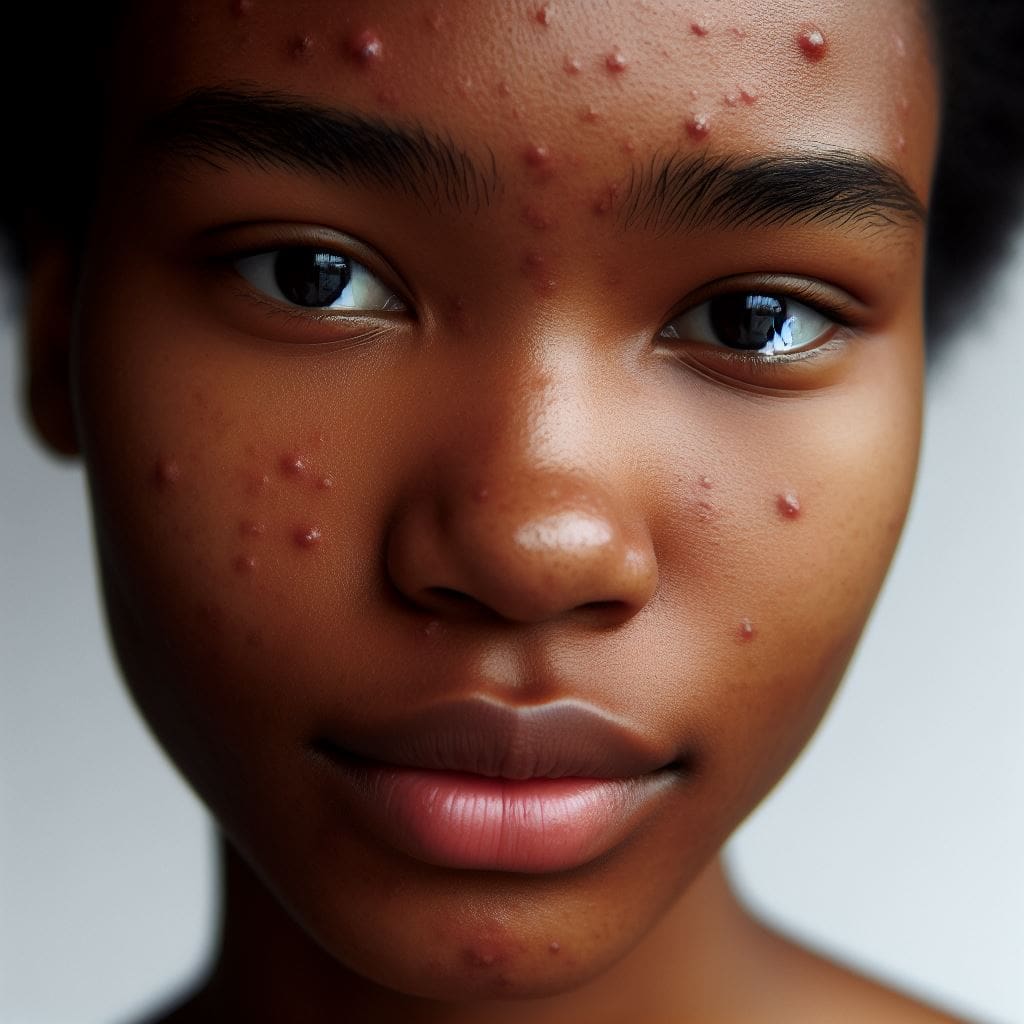Everyone deserves to feel confident and comfortable in their own skin. But for many, acne can be a persistent and frustrating obstacle on the path to achieving a healthy, radiant complexion.

The good news is, achieving clear, bright, and hydrated skin is absolutely within reach with the right approach.
This comprehensive guide will equip you with the knowledge and tools you need to tackle acne, brighten your skin tone, and achieve the healthy glow you’ve always desired.
Understanding Your Skin: The Foundation for Success
Before diving into specific strategies, it’s crucial to understand your unique skin type. Here’s a breakdown of the most common types:
- Oily skin: Characterized by excess sebum production, leading to a shiny appearance and increased risk of breakouts.
- Dry skin: Lacks moisture, resulting in flaking, tightness, and irritation.
- Combination skin: A mix of oily and dry areas, often with an oily T-zone (forehead, nose, chin) and dry cheeks.
- Sensitive skin: Prone to irritation and reactions from certain products or environmental factors.
Identifying your skin type is essential for choosing the right skincare routine and products. Using harsh or inappropriate products can exacerbate existing issues and hinder your progress.
Effective Strategies for Acne Control

Acne, a common skin condition characterized by pimples, blackheads, and whiteheads, can be caused by various factors, including hormonal changes, bacterial growth, and clogged pores.
Here are some key strategies to combat acne:
1. Cleanse Regularly:
- Wash your face twice daily, morning and evening, with a gentle cleanser formulated for your skin type.
- Avoid harsh soaps or cleansers that strip your skin of natural oils, leading to dryness and irritation.
- Pat your face dry with a clean towel instead of rubbing.
2. Exfoliate Regularly (But Gently):
- Exfoliation helps remove dead skin cells that can clog pores and contribute to breakouts.
- Choose a gentle exfoliator suitable for your skin type, ideally one to two times per week.
- Over-exfoliation can damage your skin, so be mindful of frequency and intensity.
3. Target Acne with Spot Treatments:
- Look for over-the-counter (OTC) products containing ingredients like salicylic acid, benzoyl peroxide, or tea tree oil.
- Apply these products directly to pimples according to the instructions.
- Consult a dermatologist if OTC products don’t yield desired results.
4. Maintain a Healthy Diet:
- While specific foods haven’t been definitively linked to acne, some individuals find that limiting sugary and processed foods can improve their skin.
- Focus on consuming plenty of fruits, vegetables, and whole grains to provide your body with essential nutrients for healthy skin.
- Staying hydrated by drinking plenty of water is also crucial for overall skin health.
5. Manage Stress:
- Chronic stress can exacerbate acne breakouts.
- Practice stress-management techniques like yoga, meditation, or deep breathing exercises.
- Getting enough sleep is also essential for managing stress and promoting skin health.
Brightening Your Look: Strategies for a Radiant Complexion
Beyond addressing acne, achieving a brighter, more even skin tone requires additional strategies:
1. Sun Protection is Paramount:
- Sun exposure is a major contributor to hyperpigmentation and uneven skin tone.
- Apply sunscreen with SPF 30 or higher daily, even on cloudy days.
- Reapply sunscreen every two hours, or more frequently if sweating or swimming.
2. Embrace vitamin C:
- vitamin C is a potent antioxidant that helps brighten skin tone and reduce the appearance of hyperpigmentation.
- Look for serums or moisturizers containing vitamin C to incorporate into your routine.
3. Consider Chemical Peels:
- Chemical peels involve applying a solution to the skin to remove the outer layer, revealing brighter, smoother skin underneath.
- Consult a dermatologist to determine if this is a suitable option for you.
4. Maintain a Consistent Skincare Routine:
- Consistency is key to achieving and maintaining a brighter complexion.
- Stick to your skincare routine morning and evening, even on days when your skin feels “good.”
Hydration is Key: Maintaining Supple, Glowing Skin
Dehydrated skin can appear dull, rough, and more prone to wrinkles. Here’s how to keep your skin hydrated:
1. Moisturize Daily:
- Choose a moisturizer suitable for your skin type, applying it after cleansing and before sunscreen in the morning and at night.
- Look for moisturizers containing hyaluronic acid, ceramides, or glycerin for optimal hydration.
2. Drink Plenty of Water:
- Aim to consume eight glasses of water daily to stay hydrated from the inside out.
- Limit sugary drinks and opt for water, herbal teas, or infused water instead.
3. Use a Humidifier:
- Dry air can exacerbate dehydration, especially during winter months.
- Using a humidifier in your home can add moisture to the air and help keep your skin hydrated.
4. Include Hydrating Foods in Your Diet:
- Certain fruits and vegetables, like watermelon, cucumber, and celery, have high water content and can contribute to skin hydration.
5. Avoid Harsh Soaps and Cleansers:
- As mentioned earlier, harsh cleansers can strip your skin of its natural oils, leading to dryness and irritation.
- Opt for gentle, hydrating cleansers formulated for your skin type.
Beyond the Basics: Additional Tips for a Radiant You
- Get Enough Sleep: Aim for 7–8 hours of sleep each night for optimal skin cell regeneration and overall health.
- Manage Stress: Chronic stress can negatively impact your skin. Practice stress-management techniques like yoga, meditation, or spending time in nature.
- Don’t Touch Your Face: Touching your face frequently can transfer dirt and bacteria, potentially leading to breakouts.
- Change Your Pillowcase Regularly: Pillowcases can harbour bacteria and dead skin cells. Change them at least once a week to prevent irritation and breakouts.
- Consult a Dermatologist: If you’re struggling with persistent acne or have concerns about your skin, seeking professional advice from a dermatologist is crucial. They can provide personalized recommendations and treatment options tailored to your specific needs.
Remember: Achieving and maintaining healthy, radiant skin is a journey, not a destination. Be patient with yourself, experiment with different approaches, and find what works best for your unique skin type and lifestyle.
It is possible to enjoy a clearer, brighter, and more hydrated complexion by incorporating these strategies into your daily routine.
Additional Resources:
- American Academy of Dermatology: https://www.aad.org/
- National Institute of Arthritis and Musculoskeletal and Skin Diseases: https://www.niams.nih.gov/
Video resources:
Disclaimer: This information is intended for educational purposes only and should not be construed as medical advice. Always consult with a healthcare professional before starting any new skincare regimen or treatment.



